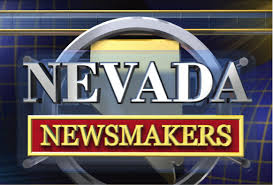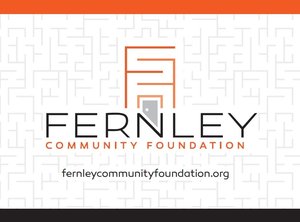Getting water to Blockchains’ ‘smart city’ will take 100-plus-mile pipeline, years of litigation, water conservationist says
By Ray Hagar, Nevada Newsmakers
Blockchains LLC has already spent $30 million for about 7,000-acre feet of water rights for its planned “Innovation Zone” futuristic city in Storey County, whose economy would be partially based on cryptocurrency.
Yet its water-use plan may be too aggressive to be viable, Kyle Roerink, the executive director of the Great Basin Water Network, said on Nevada Newsmakers.
For starters, the new city’s proposed water supply is 100 miles away, in two underground aquifers now used for agriculture near the small hamlet of Gerlach in northern Washoe County.
A pipeline project to move the water would be a daunting task, yet the moving the water over vast distances in the deserts of Northern Nevada will also be fraught with lengthy legal battles, Roerink told host Sam Shad.
“Yeah, you’ve gotta go through some fights first,” Roerink said. “There will be groups to fight it. My organization, we have defended water resources up there in the past. I think we’d continue to do and other groups are saying the same thing as well.”
A story in the Nevada Independent by Daniel Rothberg noted that when developers tried a similar water transfer in 2007, it was met with strong opposition from the Pyramid Lake Paiute Tribe, Washoe County, the U.S. Bureau of Land Management and the Sierra Club.

A similar coalition would oppose it this time, Roerink said.
“A lot of it could require a lot of rights-of-way on federal lands in addition to those tribal considerations,” Roerink said. “It would be a very long process, likely with a lot of litigation involved.
“This was all talked about back in the mid-2000s because there was a similar development proposal in the Dayton, Silver Springs and Stagecoach area,” Roerink said. “This is the same thing. We are just repeating history here.”
Any pipeline to transfer the water would likely be longer than the 100 miles or so between the Blockchains water supply and the new city.
“You are going to need a massive pipeline,” Roerink said. “Most likely, it’ll maybe have to go through the Pyramid Lake Paiute reservation. Or maybe it will have to go around some other way, kind of wind around toward Winnemucca then come back. You just don’t know.”
The planned city, the brainchild of Blockchains CEO Jeffrey Berns,would be a “smart city” in the middle of the desert a few miles east of the Reno-Sparks metro areas. It’s projected population would be about 35,000 people. Blockchains currently owns about 67,000 acres in Storey County, near the Tahoe-Reno Industrial Center.
The proposal already has sparked the interest of Gov. Steve Sisolak, who touted the use of Innovation Zones as a way to diversify the state’s economy in his State-of-the-State speech.
Sisolak also received $10,000 from Blockchains for his gubernatorial campaign and another $50,000 for his PAC that helped his transition into office. Berns also made similar contributions to Nevada Treasurer Zach Conine and a PAC associated with him.
Assemblyman Jim Wheeler, R-Minden, whose district includes the proposed site of the new city, received $10,000 from Berns and another $10,000 from his wife, Mary Berns, according to published reports.
Yet the new-city plan has seen opposition in Storey County, partially because of its plan to form its own government to oversee schools and other municipal functions.
Blockchains is also lobbying Sisolak and the Legislature to let tech companies that promise $1.25 billion in investment to create Innovation Zones on the land they own, according to The Associated Press.
These zones, per the plan, would oversee law enforcement, taxation and land management. Initially, they would be governed by a board with two members from the company, The AP has reported. Earlier this month, however, the three-person Storey County Commission voted to “oppose separatist governing control.”
Yet Blockchains has hired R&R Partners, one of the most influential lobbying and marketing firms in Nevada, to push its project to Nevada’s legislators. R&R representative Pete Ernaut told the New Republic that the project would “generate 125,000 jobs over the life of its development and $4 billion in annual revenue.”
Roerink points to two more problems with Blockchains water acquisition:
1, It’s not enough to fulfill the needs of the proposed city,
2, It may damage other aquifers in the Great Basin area, and have an adverse effect on nearby Pyramid Lake.
Roerink referenced the New Republic story to illustrate that the water Blockchain has acquired so far is not enough.
“Blockchains does not necessarily have all the water it needs yet,” he said. “They have admitted it as much, on the record, in a story in the New Republic. And so, they are still scrambling for water. For them to do what they want to do, they are still thousands of acre-feet short.”
Ernaut told the New Republic that Blockchains has about 8,000 acre-feet while 12,000 acre-feet is needed.
Roerink also fears that the water that Blockchains drains from their aquifers will inadvertently drain other aquifers, hurt the area’s agriculture and limit the water that goes into Pyramid Lake.
“Those basins are connected,” he said. “These aquifers, they are not just underground buckets that are sequestered from one another. There’s transitivity, there is flow.”
Roerink added that when you start pumping out the water, “you could potentially have issues at Pyramid Lake and there are endangered species in there. There’s a lot of factors.”
Roerink is also watching the progress of the Blockchains proposal at the Legislature.
“There are certainly things that could be proposed but I don’t want to go changing water law for just one pet project,” he said. “If you can do it here, you can do it in other places. And there are a few things being discussed right now that, in my opinion, could be detrimental for the overall integrity of the law.”
He is also worried about Blockchains holding on to the water rights near Gerlach until some future session of the Legislature finally green-lights the project.
“My biggest fear is setting up situations where entities can just sit on water for endless periods of time in order for them to have a project come to fruition,” he said. “And that can take a long time. And that whole time, you are just sitting on water, or the value of the water is increasing.
“It is very speculative and I think speculation is a illegal under Nevada water law,” he said. “We do not want that to become legal because I think that just paves the way for a lot of shenanigans and chicanery, stuff that I don’t think Nevadans really want to see.”




Talk about taking chances on a futuristic city that will be run on bitcoin money that is pretty much invisible. And then you want to run a pipeline for a hundred miles or more just to get water there! Did you not even think about drilling for water first? Or do you just have a bunch of money laying around that you can afford that pipeline? And you can bet that the Pyramid Lake Piaute Tribe is going to fight you on this. Because it it were my land you wanted to come through, I would fight you tooth and bail before you would go through my property. Don’t you think that these Native Americans have been through enough with people always taking something from them and not giving back. Put yourself in their shows, and look at it from their view. These people have ways been one with nature, and you putting in a pipeline will just disturb it. Not on that, but if you start digging, you just may dig up some ancestor of theirs, which would bring everything to a screeching halt, and then it would cost you even more money.